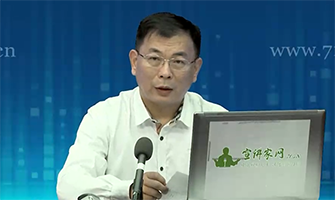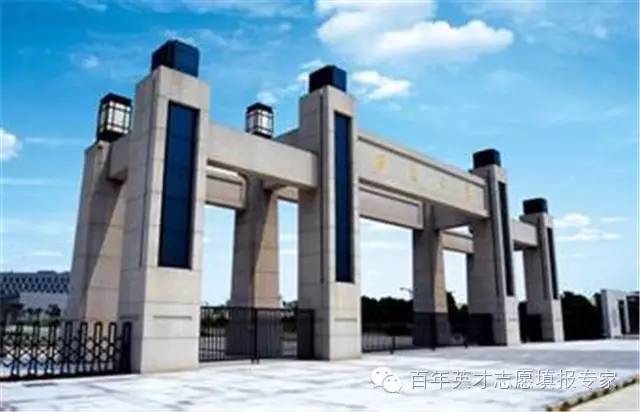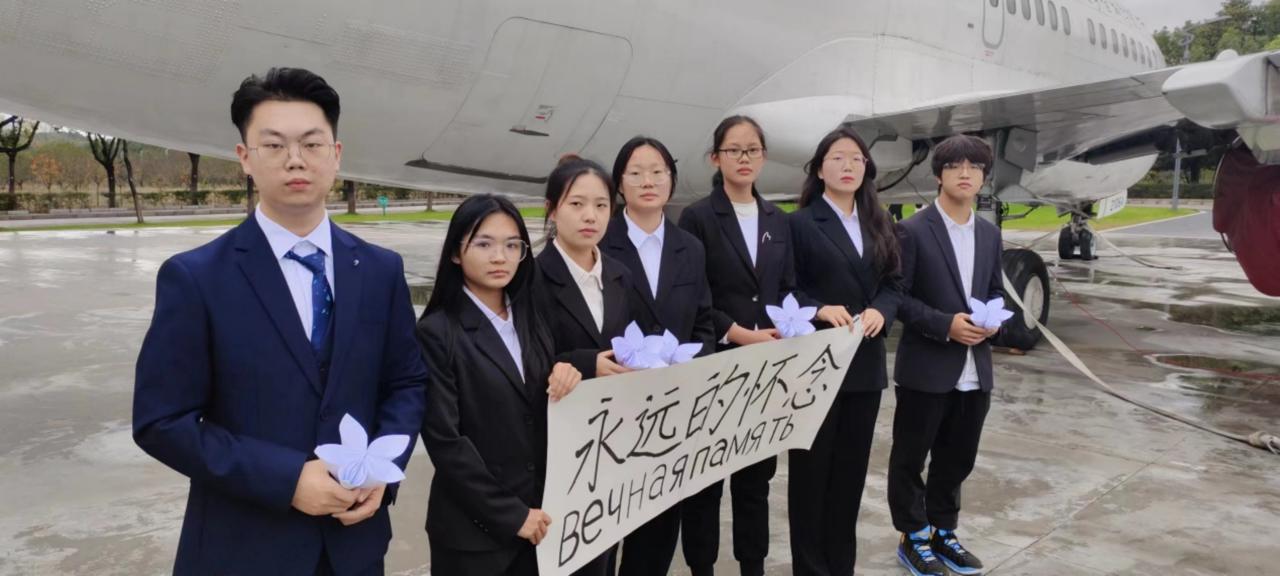
国际商业与经济学大学马克思主义学院的张开生教授兼博士主管
中国共产党的领导是历史的选择和人民的选择,党和国家的基本和生命线以及该国所有种族群体的利益和命运。就学习派对建设而言,我们必须从马克思主义党建设理论的两个主要层面开始,即2021年“中国共产党中央委员会的解决方案”关于该党的100年斗争的主要成就和历史经验的解决”,这是“由哪种马克思政党建立长期马克思主义党和建立长期马克思主义派对的”。这句话实际上是对“为新政党建立哪些政党以及如何建立政党的派对”的延伸和加深。当我们刚开始进行研究时,我们经常将简单问题复杂化。当我们研究到一定水平时,我们可以尝试简化复杂的问题。关于该党的全面和严格治理,我们提出了自我革命的重要工具。面对超过9000万党员,掌握“进入,管理和淘汰”的三个链接是一项艰巨而艰巨的任务。
对于党的政治建构,在简化了复杂性之后,我们可以从理论,历史,实践和其他方面开始。从理论的角度来看,中国共产党第19个国会大会的报告指出,要维护和加强该党的整体领导,我们必须“将党的政治建设作为整体指南”,并“将党的政治建设放在首位”。具体来说,有五个要求:首先,“确保整个党遵守中央政府”,这是该党政治建设的主要任务;第二,“尊重党宪法”,这是党员的基本要求;第三,“改善和实施民主集中主义的各种制度”,这是基本的保证;第四,“促进忠诚,诚实,公平,事实,正直和正直的真理的价值观”是重要的基础;第五,“加强政党精神训练”,这是客观的需求和必要的手段。 2018年6月29日,CPC中央委员会的政治局举行了第六次集体研究。习近平总书记提出了七个要求,即加强该党的政治建设,即保持政治方向,坚持该党的政治领导,巩固政治基础,培养政治生态,防止政治风险,维持政治风险,维持政治特征并提高政治能力。 2019年,发布了“中国共产党中央委员会对加强该党的政治建设的意见”。从历史的角度来看,尽管《中国共产党国会大会》提出了“将政党的政治建设放在首位”,但我们的政党逐渐意识到,自成立以来就加强了党的政治建设并进行了安排。
1。中国共产党在加强政治建设方面的成就
在革命,建筑和改革的所有时期,我们的党都非常重视该党的政治建设,进行了艰苦的探索,总结了宝贵的经验,并为当前的发展带来了重要的灵感。
(1)遵守并加强党中央委员会的集中和统一领导,并确保整个党遵守中央委员会
从1927年8月7日的会议统一整个政党,选举新的临时政治局,到1935年的祖尼(Zunyi)会议,再到建立毛泽东同志的军事指导地位,并建立毛泽东的建立,将毛泽东思想作为整个聚会的指导性委员会的指导性委员会,我们的党派一直持续不断地统治,并加强了统一的统一,并加强了统一的统一统治。可以看出,坚持“两个机构”并实现“两个维护”非常重要。 “两个机构”和“两个保障措施”的提议是马克思主义党建设理论的创新发展。
在中国共产党第16大国会大会之后,我们党不断加强党内的监督。 2003年8月,根据党中央委员会的部署和要求,中央纪律检查委员会的检查办公室和检查小组成立了中央组织部门。同年12月,党中央委员会发布了“中国共产党的党内监督法规(审判)”。
自新时代以来,中国共产党团结一致,并带领人民维护和加强党的整体领导,维护和改善社会主义制度,并促进国家治理体系和治理能力的现代化,为国家复兴提供了更完美的机构保证。
(2)尊重党宪法并维护当事方宪法的权威
该党第二党在1922年通过的《中国共产党宪法》是我们党制定的第一党宪法。该党第三大会通过的“中国共产党第一修正案的宪法”是该党历史上的第一修正案。从党的第二届国民大会到该党的第六国会大会,党宪法尚未建立一般轮廓。直到中国共产党的第七届国民大会才将党的计划放在党宪法面前,该党宪法首次概述了一般概述,意识到了党派计划和组织宪法的整合。 1956年,邓小平同志在该党的第八届国民大会上提出了“修改该党的宪法的报告”,这对执政党的自我建设提出了更高的要求。
1951年,刘·沙基(Liu Shaoqi)同志在第一次国家组织工作会议上发表了一份关于“为高级共产党成员斗争”的报告,为共产党成员提出了八个条件。这八个条件与我们今天在许多方面提出的共产党成员标准非常相似。
2006年1月,胡金托(Hu Jintao)同志强调了在中央纪律检查委员会第六次全体会议上研究党宪法的重要性,并提出“我们必须通过研究和实施党的宪法来促进政党行为和清洁政府的建设,并进一步增加努力,以预防和控制腐败。”
自新时代以来,史上秘书长习近平强调说:“没有任何规则会导致圈子。党宪法是该党的基本法律,也是整个党必须遵循的一般规则。”
(iii)改善和实施民主中央主义的各种系统
在新的民主革命期间,我们提出了相关的讨论,例如“基于民主和民主的集中在集中的领导下”。在新中国成立之后,民主中心主义是在5月第四宪章中首次写入文章中的文章。民主中心主义是我们政党的基本组织原则和领导体系。 1956年,邓小平同志在该党第八届国民大会上的“修改该党的宪法的报告”也对民主中心主义做出了详细的规定。
在中国共产党第13届中央委员会的第五届全体会议上,江泽民同志强调“加强民主中心主义并提高该党的战斗效力”。 1992年,中国共产党第14届国民大会提议“进一步推动党内民主”。中国共产党第15国民大会通过的党宪法阐述了民主中心主义的基本原则。 2001年,江泽民同志在会议上提议庆祝中国共产党成立80周年,以维护民主中心主义,并坚定地保护该党的集中化和统一。
中国共产党第17届国民大会的报告指出,有必要扩大党内民主国家以推动人民的民主和促进该党的社会和谐。 2007年,胡金塔(Hu Jintao)同志在中央党学校的省和部长级干部的培训课程中强调,我们必须继续积极,稳定,稳固,有效地促进党内民主的建设,并遵守民主中心主义。 2008年,胡金托同志在国家组织工作会议上强调,有必要根据新情况和变化加速民主中心主义的特定系统,并有效地在该党的领导系统,组织系统,选举系统,工作系统,工作系统,监督系统和其他方面实施民主中心主义。 In 2011, Comrade Hu Jintao proposed at the meeting to celebrate the 90th anniversary of the founding of the Communist Party of China: "To promote the construction of the Party's system, we must adhere to the Party Constitution as the foundation and democratic centralism as the core, adhere to and improve the Party's leadership system, reform and improve the Party's leadership and governance methods, develop intra-party democracy, actively and steadily promote the disclosure of Party affairs,维护党员的主要立场和民主权利,改善党的国会制度和党内选举制度,改善党内民主内部的民主决策机制,确保党的统一和统一,增强党的创造力,并坚持不懈地克服了个人任意行为和弱点和分散的现象,违反了民主党的居民,这是违反民族居民的现象。
2017年,史上秘书长习近平在研讨会的开幕典礼上强调了中国共产党第18届中央委员会第六次全体会议的精神:“我们实施的民主中心主义是一个集中式,统一的意志和自由,统一和舒适的系统,是一个集中的,统一的,统一和舒适的制度,是一种封闭的制度,是一种封闭的制度,并且是一种封闭的制度,并构成了民主的态度,并构成了民主的综合化。
(iv)加强意识形态和政治教育
自新时代以来,我们的政党进行了七项集中学习和教育。如何掌握“进入,管理和退出”的三个链接,并管理着一个超过9000万党员的大型政党。自从Yan'An纠正时期以来,我们的政党基本上已经形成了进行大规模集中教育和管理的模型。在新中国成立之后,毛泽东同志做了许多安排,例如向整个党发送呼吁“促进调查和研究风格”。 1979年,发布了“中国共产党中央委员会和国务院的高级干部待遇”。 1986年9月,中国共产党第十二届中央委员会的第六次全体会议使“中国共产党中央委员会的决议是根据建设社会主义精神文明的指导指南的解决方案”。 2000年,江泽民同志在中央纪律检查委员会第五届全体会议上强调,领先的干部必须建立正确的利益看法,并且应该“首先担心世界,后来对世界感到高兴”,并始终使人民的利益和党派和国家的利益和国家的利益首先。 2002年12月,胡金托同志再次要求整个党遵守“两个必须”。从2005年1月到2006年6月,整个党进行了一项教育活动,以维持共产党成员的高级本质,其主要内容是实践“三表示”的重要思想。从2008年9月到2010年2月,整个党进行了深入的研究和科学发展前景的实践。
(v)加强党派精神训练
自新时代以来,习近公秘书长反复就“加强党派精神训练”的重要陈述,例如“我们必须教育和指导整个党,以强烈地延续红色传统,继承红色基因,并继续共产党人的精神血统”。这些内容在党的历史中可以追溯。例如,在1941年,CPC中央委员会的政治局首次通过了“促进党派精神的中心决定”,要求党中的所有同志加强对党派精神的训练,改善党派精神,培养党派精神,并增强党派精神,以便整个党都可以统一,行动和纪律处分。 1942年,Yan'An的纠正运动于1947年发起,党的纠正运动开始了。在新中国成立后,纠正运动于1950年启动,纠正运动于1951年至1954年发起。在政治上有意识,包括政治方向,政治立场,政治纪律,政治辨别力和政治敏锐度。 1995年11月,同志江泽民同志在北京的检查中清楚地指出,在对干部进行教育时,有必要强调学习,政治和正直。 1996年,江泽民同志进一步强调了一个纪念中国共产党成立78周年的研讨会,即应以纠正精神深入进行“三个讲座”教育。后来,我们的政党还为农村地区的“三个代表”的重要思想进行了学习和教育活动。中国共产党第20大会强调了“三个政治力量”,即政治审判,政治理解和政治处决。这些重要的陈述表明,我们党的意识形态和理论是连贯和一致的。
2。中国共产党在加强政治建设方面的基本经验
(i)加强党的政治建设必须与该党的核心任务紧密相关
与该党的政治路线和核心任务紧密联系,不仅是马克思主义执政党的基本要求,而且是我们政党在加强政治建构方面的宝贵经验。在新的民主革命期间,以毛泽东为重点为重点的中国共产党人非常关注加强党的政治建设,并通过探索和诸如“三个海湾改编”之类的探索和实践来不断加强党的领导。一方面,该党的政治路线是该党各种工作的基本准则,并决定了党建设的方向和任务。另一方面,该党自己的建筑还必须围绕该党的政治路线进行密切进行,并为党的政治路线服务。因此,必须围绕党的核心任务进行各行各业的政党建设工作,我们必须全面发挥杰出党员的高级本质,规则和法规的有效性和科学性质。
我们必须将政党的政治建设作为整体指南,并全面促进所有党的建设,包括政党意识形态建设,组织建设,工作风格建设,纪律建设以及机构建设和反腐败斗争。 1938年,毛泽东(Mao Zedong)同志指出,当他回答“我们应该在反日延恩的军事和政治大学中学到什么”,“首先是学习政治方向”。在1955年举行的国家代表会议上,毛泽东同志问:“所有省级党秘书,市政党秘书,县党秘书和来自各个中央部门的负责人都在努力工作,并成为基于改善马克思主义伦尼主义水平的政治和经济工作的专家。”之后,毛泽东同志还提出了一系列重要观点,例如“政治工作是所有经济工作的生命线”,“没有正确的政治观点等同于没有灵魂”。邓小平同志提出:“我们一直都必须谈论政治。”
(ii)尊重党宪法是加强政党政治建设的基本要求
在新的民主革命期间,“尊重党宪法”反映在制定党宪法并确立党宪法的权威。在新中国建立后,“尊重党宪法”的修订和改善党宪法的修订和对党员条件提出了更高的要求。改革和开放后,“尊重党的宪法”反映在党宪法精神的恢复和发展中,并在整个党进行了系统的党宪法学习和教育活动。自从中国共产党第18个国民大会以来,我们的党派将“尊重党宪法”带入了新的水平,并进行了党的历史学习和教育。
(iii)坚持民主中央主义是加强政党政治建构的重要保证
民主中心主义是我们政党的基本组织原则和领导系统,是将马克思主义政党与其他政党区分开来的重要标志。在中国经济和社会发展的实际运作中,该系统有机地结合了党内民主的全部促进和中央集权的正确实施,这不仅刺激了整个党派的创造力,而且还统一了整个党派的思想和行动,有效地预防和越过讨论的讨论,而且没有做出决策。在全面建立一个现代社会主义国家的新旅程中,我们必须遵守并利用民主中心主义在促进党建设的新伟大项目,并确保在所有工作中实现党的领导能力。
(iv)促进正确的价值是加强政党政治建设的必要基础
在新的民主革命期间,毛泽东同志提出了“三个主要学科和八个关注点”。在新中国成立的前夕,该党第七届中央委员会的第二届全体会议上,毛泽东同志提出了“两个必须”的要求,即,有必要使同志们继续保持谦虚,审慎,非态度,非同性恋和非情绪化和非那样的风格,并使其保持一定的风格。改革和开放后,促进正确的价值仍然是党建设的重要组成部分。在革命,建筑和改革的长期实践中,该党逐渐形成了共产党的价值观,例如忠诚,诚实,公平,寻求真理,诚实,诚实和诚实。这是党员和干部必须遵循的行为守则。
(v)加强政党精神训练是加强政党政治建构的固有需求
进行党的精神是加强党的政治建设的必不可少的手段和方式。在新的民主革命期间,通过纠正运动改善了马克思主义的理论素养。改革和开放后,进行了一系列党员的学习活动,并且总是强调政治意识的重要性,并警告所有党员不要改变其政治立场,以维持党的高级性质和纯洁。

国际商业与经济学大学马克思主义学院的张开生教授兼博士主管
中国共产党的领导是历史的选择和人民的选择,党和国家的基本和生命线以及该国所有种族群体的利益和命运。就学习派对建设而言,我们必须从马克思主义党建设理论的两个主要层面开始,即2021年“中国共产党中央委员会的解决方案”关于该党的100年斗争的主要成就和历史经验的解决”,这是“由哪种马克思政党建立长期马克思主义党和建立长期马克思主义派对的”。这句话实际上是对“为新政党建立哪些政党以及如何建立政党的派对”的延伸和加深。当我们刚开始进行研究时,我们经常将简单问题复杂化。当我们研究到一定水平时,我们可以尝试简化复杂的问题。关于该党的全面和严格治理,我们提出了自我革命的重要工具。面对超过9000万党员,掌握“进入,管理和淘汰”的三个链接是一项艰巨而艰巨的任务。
对于党的政治建构,在简化了复杂性之后,我们可以从理论,历史,实践和其他方面开始。从理论的角度来看,中国共产党第19个国会大会的报告指出,要维护和加强该党的整体领导,我们必须“将党的政治建设作为整体指南”,并“将党的政治建设放在首位”。具体来说,有五个要求:首先,“确保整个党遵守中央政府”,这是该党政治建设的主要任务;第二,“尊重党宪法”,这是党员的基本要求;第三,“改善和实施民主集中主义的各种制度”,这是基本的保证;第四,“促进忠诚,诚实,公平,事实,正直和正直的真理的价值观”是重要的基础;第五,“加强政党精神训练”,这是客观的需求和必要的手段。 2018年6月29日,CPC中央委员会的政治局举行了第六次集体研究。习近平总书记提出了七个要求,即加强该党的政治建设,即保持政治方向,坚持该党的政治领导,巩固政治基础,培养政治生态,防止政治风险,维持政治风险,维持政治特征并提高政治能力。 2019年,发布了“中国共产党中央委员会对加强该党的政治建设的意见”。从历史的角度来看,尽管《中国共产党国会大会》提出了“将政党的政治建设放在首位”,但我们的政党逐渐意识到,自成立以来就加强了党的政治建设并进行了安排。
1。中国共产党在加强政治建设方面的成就
在革命,建筑和改革的所有时期,我们的党都非常重视该党的政治建设,进行了艰苦的探索,总结了宝贵的经验,并为当前的发展带来了重要的灵感。
(1)遵守并加强党中央委员会的集中和统一领导,并确保整个党遵守中央委员会
从1927年8月7日的会议统一整个政党,选举新的临时政治局,到1935年的祖尼(Zunyi)会议,再到建立毛泽东同志的军事指导地位,并建立毛泽东的建立,将毛泽东思想作为整个聚会的指导性委员会的指导性委员会,我们的党派一直持续不断地统治,并加强了统一的统一,并加强了统一的统一统治。可以看出,坚持“两个机构”并实现“两个维护”非常重要。 “两个机构”和“两个保障措施”的提议是马克思主义党建设理论的创新发展。
在中国共产党第16大国会大会之后,我们党不断加强党内的监督。 2003年8月,根据党中央委员会的部署和要求,中央纪律检查委员会的检查办公室和检查小组成立了中央组织部门。同年12月,党中央委员会发布了“中国共产党的党内监督法规(审判)”。
自新时代以来,中国共产党团结一致,并带领人民维护和加强党的整体领导,维护和改善社会主义制度,并促进国家治理体系和治理能力的现代化,为国家复兴提供了更完美的机构保证。
(2)尊重党宪法并维护当事方宪法的权威
该党第二党在1922年通过的《中国共产党宪法》是我们党制定的第一党宪法。该党第三大会通过的“中国共产党第一修正案的宪法”是该党历史上的第一修正案。从党的第二届国民大会到该党的第六国会大会,党宪法尚未建立一般轮廓。直到中国共产党的第七届国民大会才将党的计划放在党宪法面前,该党宪法首次概述了一般概述,意识到了党派计划和组织宪法的整合。 1956年,邓小平同志在该党的第八届国民大会上提出了“修改该党的宪法的报告”,这对执政党的自我建设提出了更高的要求。
1951年,刘·沙基(Liu Shaoqi)同志在第一次国家组织工作会议上发表了一份关于“为高级共产党成员斗争”的报告,为共产党成员提出了八个条件。这八个条件与我们今天在许多方面提出的共产党成员标准非常相似。
2006年1月,胡金托(Hu Jintao)同志强调了在中央纪律检查委员会第六次全体会议上研究党宪法的重要性,并提出“我们必须通过研究和实施党的宪法来促进政党行为和清洁政府的建设,并进一步增加努力,以预防和控制腐败。”
自新时代以来,史上秘书长习近平强调说:“没有任何规则会导致圈子。党宪法是该党的基本法律,也是整个党必须遵循的一般规则。”
(iii)改善和实施民主中央主义的各种系统
在新的民主革命期间,我们提出了相关的讨论,例如“基于民主和民主的集中在集中的领导下”。在新中国成立之后,民主中心主义是在5月第四宪章中首次写入文章中的文章。民主中心主义是我们政党的基本组织原则和领导体系。 1956年,邓小平同志在该党第八届国民大会上的“修改该党的宪法的报告”也对民主中心主义做出了详细的规定。
在中国共产党第13届中央委员会的第五届全体会议上,江泽民同志强调“加强民主中心主义并提高该党的战斗效力”。 1992年,中国共产党第14届国民大会提议“进一步推动党内民主”。中国共产党第15国民大会通过的党宪法阐述了民主中心主义的基本原则。 2001年,江泽民同志在会议上提议庆祝中国共产党成立80周年,以维护民主中心主义,并坚定地保护该党的集中化和统一。
中国共产党第17届国民大会的报告指出,有必要扩大党内民主国家以推动人民的民主和促进该党的社会和谐。 2007年,胡金塔(Hu Jintao)同志在中央党学校的省和部长级干部的培训课程中强调,我们必须继续积极,稳定,稳固,有效地促进党内民主的建设,并遵守民主中心主义。 In 2008, Comrade Hu Jintao emphasized at the National Organization Work Conference that it is necessary to accelerate the improvement of the specific system of democratic centralism based on new situations and changes, and effectively implement democratic centralism in the Party's leadership system, organizational system, election system, work system, supervision system and other aspects. In 2011, Comrade Hu Jintao proposed at the meeting to celebrate the 90th anniversary of the founding of the Communist Party of China: "To promote the construction of the Party's system, we must adhere to the Party Constitution as the foundation and democratic centralism as the core, adhere to and improve the Party's leadership system, reform and improve the Party's leadership and governance methods, develop intra-party democracy, actively and steadily promote the disclosure of Party affairs, safeguard the main position and democratic rights of Party members, improve the Party's congress system and the intra-party election system, improve the intra-party democratic decision-making mechanism, ensure the unity and unity of the Party, enhance the Party's creative vitality, and resolutely overcome the phenomenon of individual arbitrary behavior and weakness and dispersion that violates the principle of democratic centralism."
In 2017, General Secretary Xi Jinping emphasized at the opening ceremony of the seminar on studying and implementing the spirit of the Sixth Plenary Session of the 18th Central Committee of the Communist Party of China: "The democratic centralism we implement is a system that is centralized and democratic, disciplined and free, unified will and comfortable and lively, and is a system that closely combines democracy and centralization."
(IV) Strengthen ideological and political education
Since the new era, our party has carried out seven concentrated learning and education. How to grasp the three links of "entry, manage, and exit" and govern a large party with more than 90 million party members. Since the Yan'an Rectification Period, our party has basically formed a model of carrying out large-scale centralized education and management. After the founding of New China, Comrade Mao Zedong made many arrangements, such as sending a call to the whole party to "promote the style of investigation and research". In 1979, the "Several Provisions of the Central Committee of the Communist Party of China and the State Council on the Living Treatment of Senior Cadres" was issued. In September 1986, the Sixth Plenary Session of the 12th Central Committee of the Communist Party of China made the "Resolution of the Central Committee of the Communist Party of China on the Guiding Guidelines for the Construction of Socialist Spiritual Civilization." In 2000, Comrade Jiang Zemin emphasized at the Fifth Plenary Session of the Central Commission for Discipline Inspection that leading cadres must establish a correct view of interests, and should "be worried about the world first, and be happy about the world later", and always put the interests of the people and the interests of the party and the country first. In December 2002, Comrade Hu Jintao once again demanded that the whole party adhere to the "two musts". From January 2005 to June 2006, the whole party carried out an education activity to maintain the advanced nature of Communist Party members with the main content of practicing the important thought of "Three Represents". From September 2008 to February 2010, the whole Party carried out in-depth study and practice of the Scientific Outlook on Development.
(V) Strengthen Party spirit training
Since the new era, General Secretary Xi Jinping has repeatedly made important statements on "strengthening party spirit training", such as "we must educate and guide the whole party to vigorously carry forward the red tradition, inherit the red gene, and continue the spiritual blood of the Communists." These contents are traceable in the history of the Party. For example, in 1941, the Political Bureau of the CPC Central Committee passed the "Central Decision on Enhancement of Party Spirit" for the first time, requiring all comrades in the Party to strengthen the training of Party spirit, improve Party spirit, cultivate Party spirit, and enhance Party spirit, so that the whole Party can unify will, actions and discipline. In 1942, the Yan'an Rectification Movement was launched and in 1947, the Party Rectification Movement was launched. After the founding of New China, the rectification movement was launched in 1950 and the rectification movement was launched from 1951 to 1954. After the Fourth Plenary Session of the 13th Central Committee of the Communist Party of China, Comrade Jiang Zemin emphasized "being politically conscious". Be politically conscious, including political direction, political stance, political discipline, political discernment, and political acumen. In November 1995, Comrade Jiang Zemin clearly pointed out during his inspection in Beijing that in educating cadres, it is necessary to emphasize learning, politics, and integrity. In 1996, Comrade Jiang Zemin further emphasized at a symposium commemorating the 78th anniversary of the founding of the Communist Party of China that the "three lectures" education should be carried out in-depth with the spirit of rectification. Later, our party also carried out learning and education activities for the important thought of "Three Represents" in rural areas. The 20th National Congress of the Communist Party of China emphasized the "three political forces", namely political judgment, political understanding, and political execution. These important statements show that our party's ideological and theories are coherent and consistent.
2. The basic experience of the Communist Party of China in strengthening political construction
(I) Strengthening the Party's political construction must be closely linked to the Party's central tasks
Closely ties with the Party's political line and central tasks is not only the fundamental requirement of the Marxist ruling party, but also a valuable experience of our Party in strengthening political construction. During the New Democratic Revolution, the Chinese Communists, represented by Comrade Mao Zedong as the main focus, paid great attention to strengthening the political construction of the Party, and continuously strengthened the Party's leadership through exploration and practices such as the "Three Bays Adaptation". On the one hand, the Party's political line is the fundamental guideline of the Party's various work and determines the direction and tasks of Party building; on the other hand, the Party's own construction must also be carried out closely around the Party's political line and serve the Party's political line. Therefore, party building work in all walks of life must be carried out around the central task of the Party, and we must give full play to the advanced nature of outstanding Party members, the effectiveness and scientific nature of rules and regulations.
We must take the political construction of the Party as the overall guide and comprehensively promote all Party construction, including Party ideological construction, organizational construction, work style construction, discipline construction, as well as institutional construction and anti-corruption struggle. In 1938, Comrade Mao Zedong pointed out when he replied "What should we learn in the Anti-Japanese Military and Political University of Yan'an" that "first is to learn a political direction." At the National Representative Conference held in 1955, Comrade Mao Zedong asked "all provincial party secretary, municipal party secretary, prefectural party secretary and responsible persons from various central departments to work hard and become experts who are proficient in political and economic work on the basis of improving the level of Marxism-Leninism." Afterwards, Comrade Mao Zedong also put forward a series of important views, such as "political work is the lifeline of all economic work" and "No correct political viewpoint is equivalent to no soul". Comrade Deng Xiaoping proposed: "At all the time, we have to talk about politics."
(II) Respecting the Party Constitution is a basic requirement for strengthening the Party's political construction
During the New Democratic Revolution, "respecting the Party Constitution" was reflected in formulating the Party Constitution and establishing the authority of the Party Constitution. After the founding of New China, "respecting the Party Constitution" was reflected in the revision and improvement of the Party Constitution and putting higher requirements on the conditions for Party members. After the reform and opening up, "respecting the Party Constitution" is reflected in the restoration and development of the Party Constitution spirit, and carrying out systematic Party Constitution learning and education activities throughout the Party. Since the 18th National Congress of the Communist Party of China, our party has brought "respecting the Party Constitution" to a new level and carried out party history learning and education.
(III) Adhering to democratic centralism is an important guarantee for strengthening the political construction of the Party
Democratic centralism is the fundamental organizational principle and leadership system of our party, and is an important sign that distinguishes Marxist parties from other parties. In the actual operation of China's economic and social development, this system organically combines the full promotion of intra-party democracy and the correct implementation of centralization, which not only stimulates the creative vitality of the whole party to the greatest extent, but also unifies the thoughts and actions of the whole party, effectively preventing and overcoming the decentralization of discussion but not decisive and decision-making but not doing so. In the new journey of comprehensively building a modern socialist country, we must adhere to and use democratic centralism well in advancing the new great project of Party building and ensuring the realization of the Party's leadership over all work.
(IV) Promoting correct values is a necessary foundation for strengthening the political construction of the Party
During the New Democratic Revolution, Comrade Mao Zedong proposed the "three major disciplines and eight points of attention." At the Second Plenary Session of the Seventh Central Committee of the Party on the eve of the founding of New China, Comrade Mao Zedong put forward the requirement of "two musts", namely, "It is necessary to make comrades continue to maintain a modest, prudent, non-arrogant and non-impatient style, and make comrades continue to maintain a style of hard work." After the reform and opening up, promoting correct values is still an important part of Party building. In the long-term practice of revolution, construction and reform, the Party has gradually formed the values of Communists such as loyalty, honesty, fairness, truth-seeking, honesty, honesty, and honesty. This is a behavioral norm that party members and cadres must follow.
(V) Strengthening party spirit training is an inherent need to strengthen party political construction
Carrying out party spirit is an indispensable means and way to strengthen the party's political construction. During the New Democratic Revolution, the theoretical literacy of Marxism was improved through the rectification movement. After the reform and opening up, a series of party members' learning activities were carried out, and the importance of being politically conscious was always emphasized, and all party members' political stances were warned not to change in order to maintain the advanced nature and purity of the party.
 微信扫一扫打赏
微信扫一扫打赏
 支付宝扫一扫打赏
支付宝扫一扫打赏






